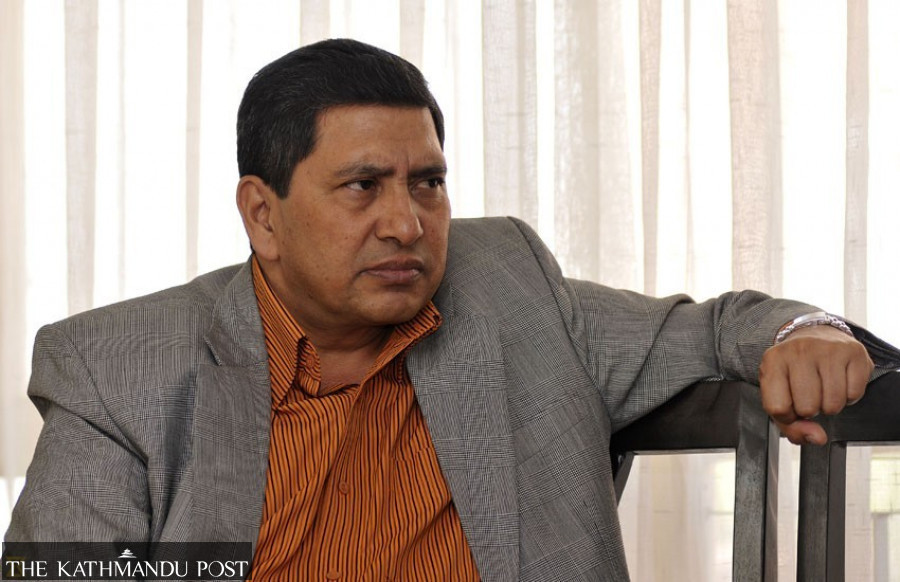National
Nepal cannot accept Saarc's replacement with Bimstec
The House of Representatives approves the charter adopted in 2022 by the fifth Bimstec summit in Colombo, Sri Lanka.
Post Report
Deputy Prime Minister and Minister for Foreign Affairs Narayan Kaji Shrestha has said Nepal will not accept the Bay of Bengal Initiative for Multi-Sectoral Technical and Economic Cooperation (BIMSTEC) to replace the other regional organisation, the South Asian Association for Regional Cooperation (SAARC).
Nepal is a member of both regional bodies though Bimstec is functioning and Saarc was unable to hold its summit in 2016 due to a long-standing rivalry between India and Pakistan. No summit of the grouping has been held since 2014 and Nepal continues to hold its chair. Kathmandu hosts the Saarc secretariat while the Bimstec secretariat is in Dhaka, Bangladesh.
“We do not agree on activating the Bimstec at the cost of Saarc becoming passive and ineffective,” said Shrestha on Tuesday, discussing the Bimstec charter that has been tabled in the House of Representatives for adoption. The House of Representatives later approved the charter adopted in 2022 by the fifth Bimstec summit in Colombo, Sri Lanka.
“We do not see Bimstec as a replacement of Saarc,” said Shrestha. “In order to reinvigorate the stalled Saarc process, Nepal, as its current chair, will surely take an initiative.”
Lawmakers Sita Mizar, Bidhya Bhattari, Deepa Sharma, Ishwori Gharti, Sunita Baral, Ek Nath Dhakal, Swarnim Wagle, Manish Jha, Ganesh Parajuli, Sobita Gautam, Pradip Yadav, Devendra Poudel, Madhav Sapkota, Narayani Sharma, Purna Bahadur Gharti Magar, Abdhul Khan, Prem Suwal, Sonu Murmu, Binita Kumari Singh and Damodar Poudel “Bairagi” voiced concerns about Nepal’s engagements in Bimstec, other regional organisations and sub-regional initiatives like the Bangladesh-Bhutan-India and Nepal (BBIN) within the SAARC framework.
Raghuji Pant of the CPN-UML accused India of deactivating Saarc. As per its wish to exclude Pakistan, Bimstec was established, he said.
“Since Bimstec is a separate regional organisation, we will take advantage and play our role. We are unable to activate the Sarac even as we currently chair it but we will do our part to activate it. We are thinking of taking some initiatives so as to activate SAARC,” Shrestha said.
No organisation remains active or passive “as per our wish”, he said. “As an active member, Nepal will try its best to reinvigorate Saarc and make it an effective organisation. Since Bimstec is a separate regional organisation, we will do the work required of a member.”
Pant alleged that Bimstec was born out of India’s divisive interest as its core objective is to isolate Pakistan.
“India wants to minus Pakistan in the region so it formed Bimstec. Saarc is kept passive due to Pakistan’s presence in it,” said Pant.
Wagle of Rastriya Swatantra Party welcomed the adoption of the Bimstec charter and talked about how Nepal can take advantage of regional organisations.
“The preamble of Bimstec, its purpose and principle are positive and the provisions enshrined in the Bimstec charter do not pose any threat to Nepal’s sovereignty,” said Wagle. “It took Bimstec 25 years to finalise its charter. It is gradually being activated. If we can expedite the Bimstec process, Nepal will reap benefits.”
These kinds of regional organisations start with the negotiation of preferential trade agreements among the member states and gradually transform towards an economic partnership agreement, said Wagle. “It seems Bimstec is also taking the same route.”
“Saarc could not be reinvigorated and we know the geopolitics behind it,” Wagle added. “As per India’s interest and lead, the BBIN is now activated. The BBIN is a sub-regional organisation without a charter.”
Bimstec has some components of geopolitics too but its connection of South Asia with the East Asian market creates a lot of opportunities, he added.
Pant said that Nepal can benefit from Bimstec in technical, education and research areas but the country should avoid any geopolitics within member states.
The practice of nations’ organisation began 80 years back with the United Nations, 55 years ago from the ASEAN, 40 years back from the Saarc, 27 years back from Bimstec, Manish Jha of Rastriya Swatantra Party said. “We want to know what kind of practical preparation the country is making to take advantage of Bimstec.”
Bimsetc has identified some areas of cooperation. Nepal should figure out what “we will do in the next five, ten and fifteen years,” Jha said. “We should set targets and key performance indicators.”
Jha also asked about Nepal’s position on the Bimstec Eminent Persons’ Group and what kind of consultation the government had done before forming the EPG. Former foreign secretary and Nepal’s representative to the United Nations Durga Bhattarai represents Nepal to the Bimstec EPG.




 18.12°C Kathmandu
18.12°C Kathmandu













